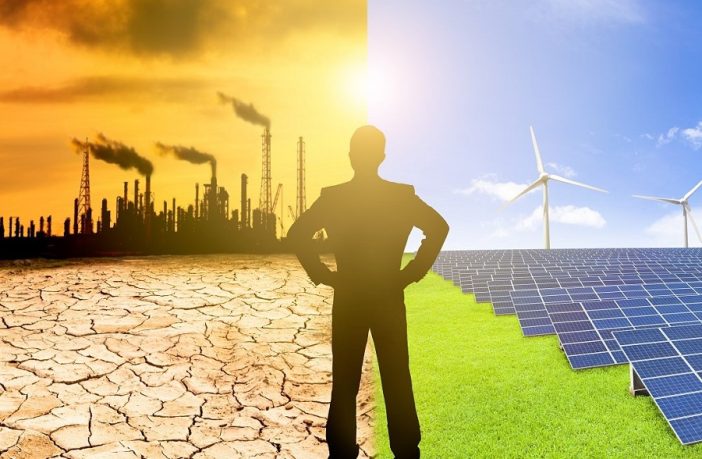Report
- South Africa’s energy transition involves the decommissioning of its highly polluting, centralised energy system (what we are transitioning out of) and the creation of a new green economy powered by renewable energy (what we are transitioning into).
The World Bank estimates that the cost of the energy transition in South Africa in total will be R8.5tn in net present value (NPV) between now and 2050. Approximately half of this (R4.2tn) is required for the low-carbon transition. This involves building less carbon-intensive energy infrastructure and associated industries, for example fuels, construction and vehicles.
R2.4tn will be required for climate adaptation, including building smarter, more climate-resilient cities and infrastructure and developing better, less wasteful water and waste management systems. The remainder – R1.87tn – is earmarked for social justice initiatives that cut across both adaptation and the low-carbon transition. This includes, for example, social ownership projects, skills training and other labour market activation programmes that will contribute to the creation of an inclusive green economy.
The JET-IP takes a more limited view of what is required to secure social justice (albeit over a shorter period). It calculates a R60bn funding requirement over the next five years for initiatives in Mpumalanga to cater for ex-coal workers and communities. Specific activities budgeted for include repurposing of old coal plants, skills retraining initiatives and small business support programming. Beyond Mpumalanga, R3.2bn is pencilled in for localisation and piloting of social ownership models in other parts of South Africa.
This transition has implications for patterns of ownership and employment. Who funds, who gains, and who loses, is a social justice issue. Thousands of livelihoods depend on the coal sector – how can these livelihoods be protected? And how can an inclusive green economy be built? What roles can the private sector play – in particular to fund this?
These questions are investigated in the second of three reports ‘Funding social justice in the energy transition’ released by the Africa Climate Foundation (ACF) and produced by Intellidex. The series looks at achieving the scale in our Transition that is required, particularly through a financing lens. The first report looked at reforms needed to achieve scale for a broad range of funding needs including mitigation.
The central question of this latest report is “can the private sector play a meaningful role in financing the Just components of the transition.”
Link to the ‘Funding social justice in the energy transition’ report HERE
A webinar will take place on 29 March 2023 in which the above will be discussed. For more information or to register click HERE.
Author: Bryan Groenendaal















